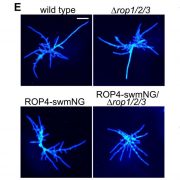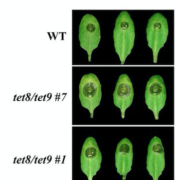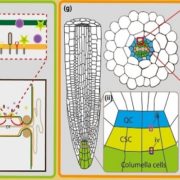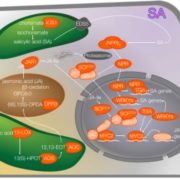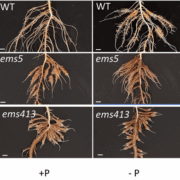Cell type specific transcriptional reprogramming during Ustilago maydis and maize interaction (bioRxiv)
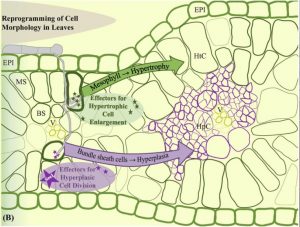
Figure from Redkar et al. 2017
Ustilago maydis is a model biotrophic fungus which causes smut disesase in maize, characterized by tumorous symptoms on all aerial parts. Tumor formation in leaves of the host is a result of massive reprogramming by modulation of two processes, hypertrophy (cell expansion) and hyperplasia (cell division). Previously, it has been shown that the tumor formation is mediated in a cell-type specific manner. Mesophyll cells show hypertrophy, while hyperplasia occurs exclusively in the bundle sheath cells. Recently, Villajuana-Bonequi et al. characterized the plant transcriptional program that occurs in tumorous mesophyll and bundle sheath cells using a combination of techniques such as high resolution laser capture microdissection and cell specific RNAseq. In this study they observed that genes involved in cell cycle regulation get altered in tumorous cells. Hence, the study provides interesting insights to understand tumor formation by plant pathogens at cellular resolution. (Summary by Mugdha Sabale) bioRxiv 10.1101/552562v1


